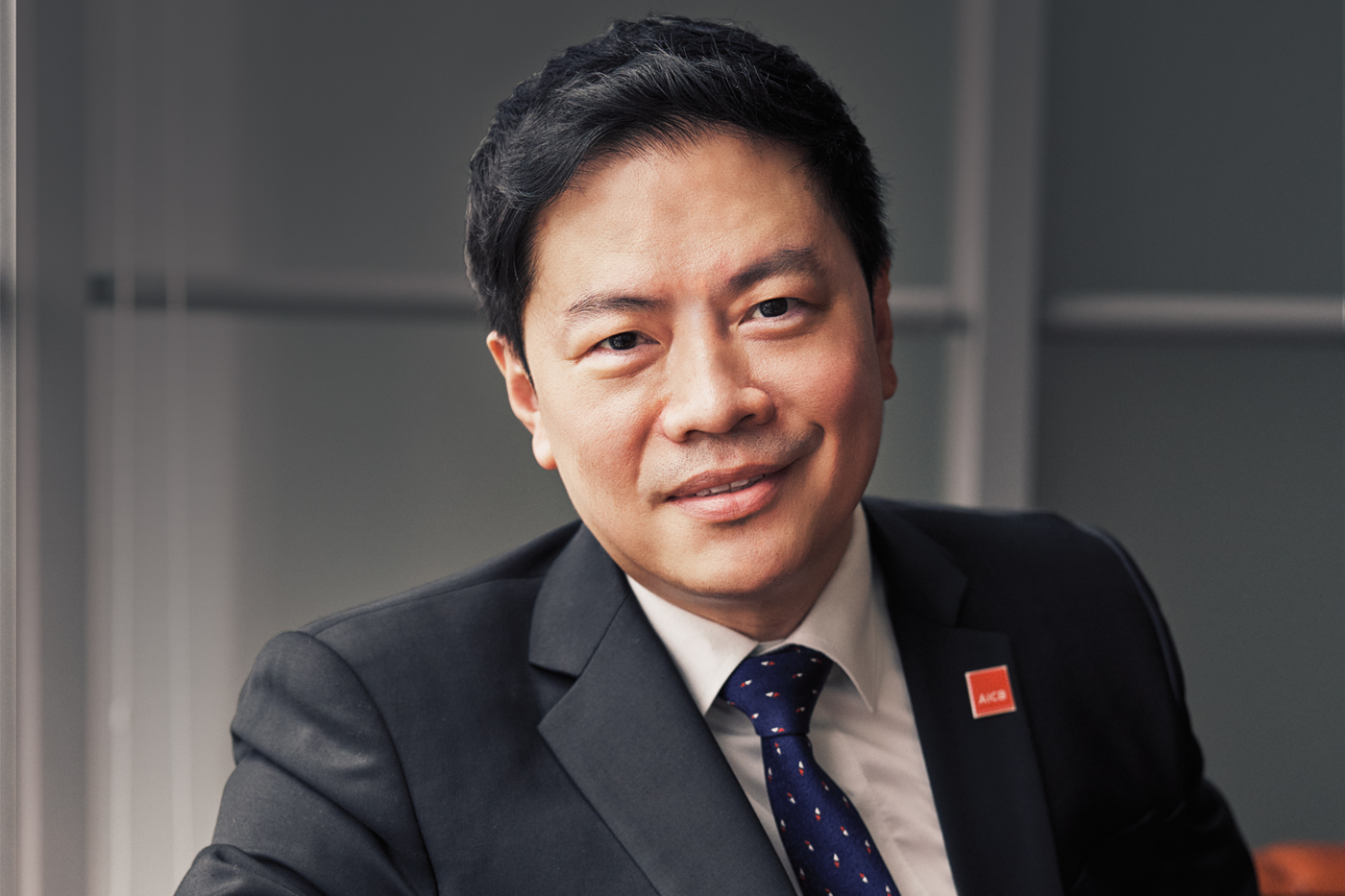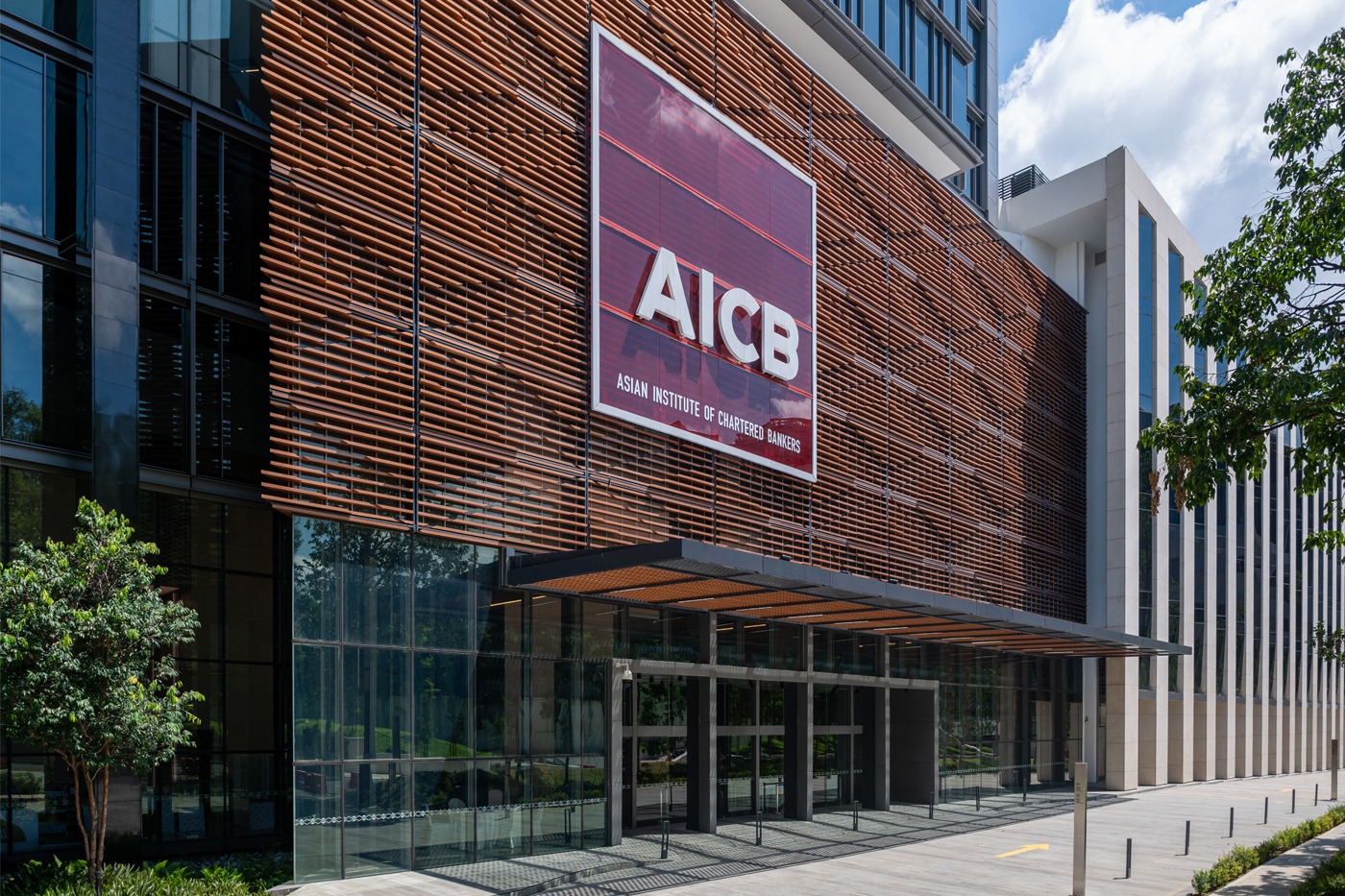‘To Walk Far, We Walk Together’
In an exclusive interview with BANKING INSIGHT, CEO Edward Ling discusses what it means to be at the helm in a post-Covid world.

By Dr Amanda Salter
In an exclusive interview with Banking Insight, CEO Edward Ling discusses what it means to be at the helm in a post-Covid world.
My first impression of Edward was of a serious man, some might even call him ‘guarded’. As we continued to speak however, he quickly opened up to reveal another side to his demeanour – insightful, intelligent, determined, with a keen sense of humour.
Edward’s people-centred ethos stood out strongly to me, a collaborative leadership style with a focus on long-term impact. He is a man who clearly relishes new challenges and hungers for continuous learning.
This article summarises the highlights from our conversation, including his first year on the job, his leadership style, what the Institute brings to the global stage, as well as the course he is charting for the next few years.
Q: Edward, you’ve steered AICB through one of its most significant years so far. What does it mean to you personally, to lead this Institute during one of the most tumultuous times in recent history?
Many people equate the CEO position with power. I prefer to emphasise the responsibilities that come with the job because with much power comes much responsibility; my job is to steward that power and authority responsibly.
One of my first missions since coming onboard in September 2021 has been to listen and to understand the expectations of our stakeholders, which include the membership, Council members, my team and our partners. There is no doubt in my mind that the organisation and members’ best interests must come first, even ahead of my own.
This is necessary in understanding and positioning the Institute so that people realise the value proposition of AICB, what we bring to the table because we occupy a unique space in the financial services sector. There is an ultimate goal in mind – something that would mark that we’ve arrived to the next level of maturity as an organisation – and we’re working tirelessly to get there. But no matter how much we plan for things to be predictable and controllable, they rarely are. We need to anticipate what’s coming down the track to meet us, and plan how we will tackle the challenges that are on the horizon.
The next step was to bring my team with me on this journey to chart the Institute’s next phase of growth. I am a firm believer of the adage, “if you want to walk fast, walk alone; but if you want to walk far, walk together”. Coming up with a plan is not actually difficult, what’s crucial is that we get everyone travelling in the same direction, to ensure that everyone understands and adopts the same vision. “How do I bring people with me?” is very important, otherwise it will be a very lonely journey, and I don’t think we’d last very long. We need a team mindset.
Q: What keeps you on track in this journey – what’s your North Star?
We need to rally around one single purpose – how and why we exist.
The AICB is a professional qualification institute, and that makes us a membership body, albeit a niche one. We exist because of the qualifications we offer, the standards we uphold, and the elevation which the Chartered Banker status confers. These aspects make us not just a membership body, but one that represents the best of banking.
In this way, it’s very important that we stay true to our core purpose, the reason we exist. Our members’ opinions matter; they have a crucial say in what their vision for AICB is. Coupled with the lateral vision of our Council, who are captains of industry, the Institute gains its gravitas. This shared understanding is key and must be the starting point in everything we do. How we get there is my responsibility.
I believe we’ve got much of the formula right. Our 2021 membership survey puts us in good stead: 94% agree that our professional qualifications equip them with the requisite skills to succeed in banking today; 83% believe that being an AICB member has contributed to their career growth; and 92% are proud to be associated with the brand and would retain their membership, even on a voluntary basis.

Q: What are your plans for AICB over the next few years?
How do I explain this without divulging company secrets? [laughs]
Here’s what I believe: it’s easy to grow membership numbers, but retaining and creating an engaged, beneficial community is a tougher goal to achieve. Which is why my team and I are focused on these four key areas for the Institute:
Retention – we want to retain our members and grow with them. If you’re a good membership organisation, people will stay with you forever; if you’re not so good, they join, they lose interest and leave. We want AICB members to enjoy being a part of this organisation, to enjoy the values and benefits that we provide; not just today, but throughout their professional careers and beyond. Digitalisation is a big part of the projects we’re undertaking to get members onboard with remote access learning, to move the dial up from 60% who currently use our online platform for continuous learning. Our other curated events, such as this year’s inaugural Malaysian Banking Conference, jointly organised with The Association of Banks in Malaysia, and the annual International Conference on Financial Crime and Terrorism Financing, are avenues that go beyond competency building – they foster collaboration and a sense of belonging among industry members.
Reputation – trust isn’t easy to build. It’s important that others perceive AICB to be the embodiment of the values we expect of the industry. Our standing as a premier professional body depends on the continued positive perception of the expertise, qualifications, networks, and services that we provide. It also comes through in our actions and the value that we deliver to members.
Rigour – maintaining the standard of our qualifications is key. Without such rigour, our membership growth would accelerate, but it would not be sustainable. Unlike broad-based membership organisations, the Chartered Banker designation – jointly conferred in this region by the Chartered Banker Institute (CBI) UK and the AICB – has a bigger purpose. It is a route to rebuilding public confidence and trust in banking and bankers since the global financial crisis.
Relevance – our content and how it is delivered must reflect today’s conversations and tomorrow’s concerns. The Institute must be the first port of call for our members, not just on ongoing issues in the mainstream like regulation and financial resilience, but on discussions that are unfolding at the fringes of banking, issues that are not yet knocking at our doorstep but will be very soon. Partnerships, in this respect, are key. We cannot possibly know all there is to know in finance, and this is where we leverage the knowledge and specialisms of our global partners and institutional networks, by giving them in-person and remote access to engage with top experts in the field.

Q: You mention that partnerships are key. What partnerships are you investing in at AICB?
We are privileged to have the very best in the industry with us.
The CBI in the UK, with whom our Chartered Banker qualification is jointly awarded, sets the bar, not just in devising banking qualifications and assessments, but also through their know-how and preparedness in times of uncertainty. For instance, throughout the pandemic, we worked shoulder to shoulder in migrating all our exams from physical sessions to online within two months with zero interruption or service failure – a huge achievement.
We also partner with the Bangor Business School, UK, one of the world’s top 10 schools in banking, to award the Chartered Banker MBA. This programme gives our members an accelerated pathway to gain both the Chartered Banker status and an MBA at the same time.
Our sister organisation, the Asian Banking School, whose campus is a stone’s throw away from the Institute, works with us to deliver world-class training workshops. In this way, we leverage their sector-leading executive education programmes with some of the top business schools in the world, including the Cambridge Judge Business School at the University of Cambridge, to raise the competency standards for our membership.
These collaborations allow us to innovate our qualification pathways. For instance, in addition to our Chartered Banker pathway, we’ve also mapped out an experiential pathway for our members via the Chartered Banker By Experience programme, to reflect the rich and diverse talent pool of senior leaders in industry. We recognise that experience holds its own value and AICB is a great platform to connect the generations of banking professionals, so that they learn from each other too in informal ways.
Q: Earlier we touched upon innovation. What you said echoes some of what I’ve experienced in the digital consulting sphere, that well-established organisations are often edged out of relevance and we’ve got to be cautious about that.
It’s true. Established organisations tend to do the same thing over and over, thinking that they’re at the top of their game and continue to work what they feel to be a winning formula. Once this mindset creeps in, that’s when the organisation begins slowing down – they stop innovating, they’re less quick to try out new things, and they underestimate the competition.
AICB is more niche and this focus makes us agile enough to innovate at the pace of today’s changing business environment. We do share some common risks and challenges with other established professional bodies and quite often the strategies can seem similar to an outsider who is looking in. But the inner workings of each organisation can be worlds apart.
We shouldn’t be afraid of things that we’re not familiar with, especially with the new generation entering the talent pipeline – the way they learn and want to learn things is different. We must be modern, different, and fresh; we must meet expectations head on.
Q: My final question: I’ve heard that you’re a fan of the Civilization* video game. What part of it fascinates you?
[laughs] It’s one of my guilty pleasures, although I haven’t gotten around to it lately.
I’ve always enjoyed strategy and tactical pursuits, even on my days off, and I’ve been a fan of this game ever since it first came out in 1991. Building a virtual empire isn’t just about defence and attack, and dominance isn’t achieved solely by invading other empires – you can also win through science and technology, or through culture.
It requires me to think hard about how to manage my civilisation. There are so many things you need to juggle, so many interests to consider. It was probably one of the best leadership training tools in those early years of my career that still resonates with me today.
Just like Civilization, there are many types of leaders in this world. You pick and choose your leadership style, and your ethos shapes how you play the game. Some leaders focus purely on making money, without thinking much about the environment, social factors, or governance (ESG). But others take a broader view, they want to do well in terms of ESG and embed it as part of their definition of success – my money is on these organisations. They’re the ones who will actually enjoy lasting success.
*The award-winning strategy game by Sid Meier in which players battle to build empires that will stand the test of time.
Dr Amanda Salter is Associate Director at Akasaa, a boutique content development and consulting firm. She has delivered award-winning customer experience strategies for the Fortune 500 and been an Agile practitioner for over a decade. Previously with Accenture’s London office, Dr Salter holds a PhD in Human Centred Web Design; BSc (Hons) Computing Science, First Class; and is a certified member of the UK Market Research Society and Association for Qualitative Research.